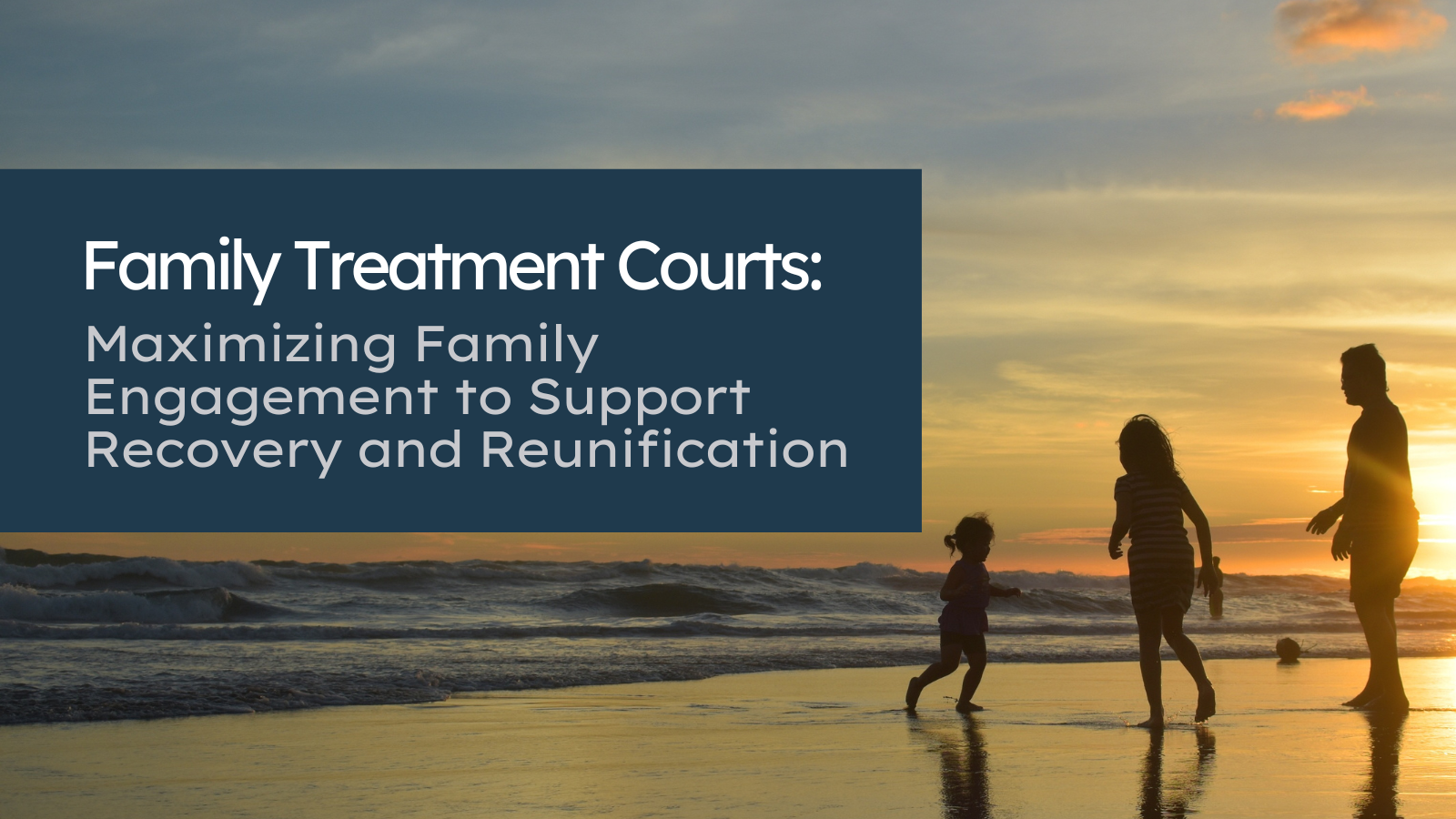According to 2016 Bureau of Justice data, 47.1 percent of the individuals incarcerated in state and federal prisons have substance use disorder (SUD). Left unaddressed and untreated, this chronic disease profoundly impacts individuals, families, and entire communities. Parental drug misuse, for example, is second only to neglect in circumstances related to a child’s removal from the home by child protective services. The family treatment court is an opportunity to align the criminal justice and child welfare systems by capitalizing on the supportive effects of family engagement in recovery.
According to the National Treatment Court Resource Center, family treatment courts unite judges, attorneys, child protective services, and treatment personnel to provide “safe, nurturing, and permanent homes for children while simultaneously providing parents with the necessary support and services they need to become drug and alcohol abstinent.”
Every family treatment court across the country, of which there are hundreds, has distinctive characteristics, operations, and eligibility requirements, as exemplified in this GAINS Center webinar featuring Alameda County Family Court Services (California), the Travis County Parenting in Recovery Program (Texas), and Tompkins County Family Treatment Court (New York). The many names by which family treatment court is alternatively referred—family drug court, family dependency treatment court, family recovery court, family drug treatment court, and family healing to wellness court—reflect the multidisciplinary and multisystemic collaborative nature of this approach.
Effectiveness
Family treatment court can tip the scales from hopelessness to recovery, from separation to reunion.
Jane Pfeifer, program director at Children and Family Futures (CFF), a national provider of training and technical assistance to family treatment courts, states that recovery does not happen in a vacuum, noting that “family” may be the “family of origin, the extended family, or the family of community.” Similarly, in a GAINS Center webinar, Dr. Jessica A. Dahlgren—a subject-matter expert on children with incarcerated parents, families with child welfare involvement, and families impacted by SUD—suggests that improving family bonding is related to increased recovery capital for individuals who participate in treatment courts.
Family treatment courts have been shown to be effective in terms of parents entering, staying in, and completing treatment, as well as in family reunification. Moreover, promoting the recovery of individuals with SUD may prevent possible drug-related crimes and involvement with the criminal justice system, including incarceration. This also has intergenerational benefits: parental incarceration is associated with adverse outcomes for children, including risk of SUD as adults and engagement in criminal behavior.
Moving Forward
The resource Family Treatment Court Best Practice Standards was created to support the activities of family drug courts nationwide and provide guidance on how programs and courts can begin to implement these standards. In a GAINS Center webinar introducing the standards, Dr. Kirstin Frescoln, senior program associate with the CFF, states, “We believe that when local practitioners implement the family treatment court standards with fidelity, outcomes for children, parents, families, and family treatment courts will improve. As local practitioners strive to develop the resources, partnerships, and best practices set out in the standards, we anticipate that all families involved in child welfare within that district will benefit, and the outcomes for families not served by family treatment courts will also improve.”
Given the multifaceted nature of the model, establishing a family treatment court can be a significant undertaking. Jurisdictions can lay the groundwork by pursuing strategies key to working with families affected by SUD, such as early identification and timely access to treatment, use of peer recovery coaches, and intensive case management.
The CFF’s Family Treatment Courts Training and Technical Assistance Program provides training (including free tutorials), technical assistance, and evaluation to state, local, and tribal jurisdictions seeking to develop, enhance, and sustain a family treatment court. Recently, the GAINS Center partnered with CFF to present webinars on improving referral pathways and providing equitable access. With these layers of support, jurisdictions are poised to address SUD on a family level, with the needs of the child and goals of reunification and recovery at the forefront.
Like what you’ve read? Sign up to receive the monthly GAINS eNews!


